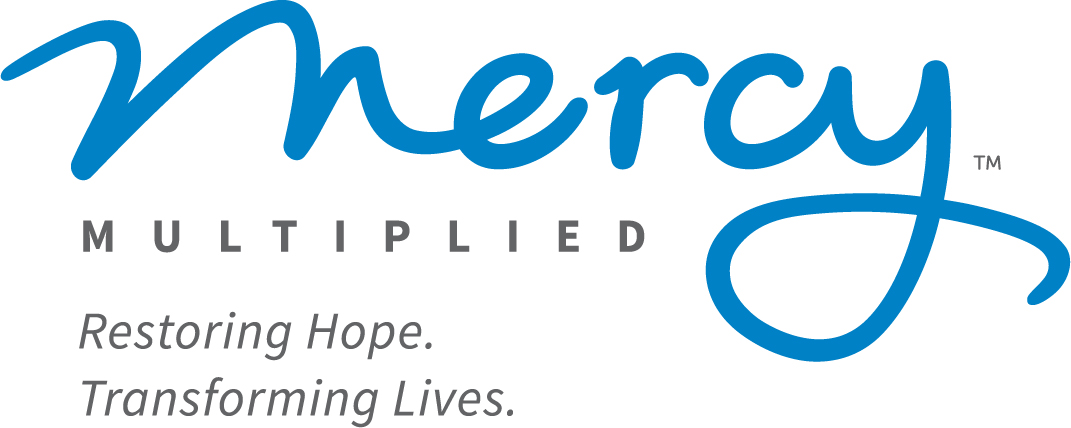Self-Injury Awareness Day is March 1. To raise awareness on this topic, one of our counselors at Mercy Multiplied, Leslie Lamb, MS, NCC, LPC is sharing on the blog about how someone can start opening up about self-harm as well as providing insight to why someone may choose to self-harm.
Self-harm is one of the least understood emotional releases struggling individuals engage in. Maybe it is less sympathetic because no one reason can be pinpointed for why people do it – self-punishment, release, expression, a cry for help. Whatever the reason, most who use this as a form of self-abuse will agree that regardless of the purpose for doing it, the objective is the same: controlled pain.
My Experience with Self-Harm
When I was a teenager, I remember the pain I felt internally about life and relationships was intangible, unsolvable, and therefore overwhelming. I remember vividly the first time I punched a wall. Initially, I felt crazy, out of control, and angry. But as the pain settled in, I finally had something I could feel; as the bruise developed and the swelling started, I had something to identify as injury. The wound I felt in my heart had a physical counterpart, which took the focus off of what couldn’t be seen or felt to what could.
That started something in me, and even though it didn’t become an addictive behavior like it does for so many, it did become a part of how I dealt with internal angst. I used self-harm as an external release, unhealthy, but nonetheless temporarily effective. Even as an adult, occasionally my brain will go back to that memory in hard moments and try to tempt me into that response.
Who’s Responsibility Is It?
Awareness of self-harm can be tricky because it is so personal and intimate. I often hear people who struggle say, “If I had been more open about my struggle, I might have gotten help sooner, but I was afraid that people would think I was crazy or that they would misunderstand my need for help and label me.”
While it is easy sometimes to put the responsibility on others, there are some things that we might do differently if we start to pay attention. For instance, if you see that people are intentionally and consistently not exposing various body parts or having continual bruises, cuts, or burns that seem unusual, are you taking note? Maybe you could ask someone about why they don’t wear shorts or only wear long sleeves from a place that really was concerned and not just a judgment. Especially when dealing with things that keep people isolated, it is important to notice and take more of an interest in the time someone spends away from people and the shift in the person’s demeanor afterward. These small changes might help those struggling to find the freedom and safety to open up about what is really going on.
Unfortunately, people don’t always choose to be aware – out of selfishness or ignorance, and ultimately the responsibility for getting help rests on the individual struggling.
Self-Harm: Physical and Spiritual
Awareness requires going deeper than what is seen. The thing that we often neglect in behavioral addictions is that what is physical is also tied to the spiritual. In other words, things we do and say not only affect the world around us that we can see but also engage the world around us we can’t see.
Physically we understand how addiction affects the brain and becomes impulsive and self-gratifying. Also, there is a spiritual aspect to addiction. Our choice to engage self-harm to gratify us in the moment and resist God’s comfort has spiritual implications as well. It provides a loophole, a foothold if you will, where the enemy of our soul gets to send destruction into our lives, by our own hands! What we think is helping us is actually creating a wormhole of deception and doubt to take root. It isn’t enough that other people hurt us; the enemy’s response to that is to convince us to hurt ourselves!
One way that we can begin to break that pattern is to understand who stands to gain from self-harm.
John 10:10 says this:
A thief has only one thing in mind—he wants to steal, slaughter (or sacrifice), and destroy. But I have come to give you everything in abundance, more than you expect—life in its fullness until you overflow!
In those moments of temptation to bring harm to yourself, or if others share with you their desire to self-harm, think about the END result. As some might say, play the tape through. After the initial release and the pain, what next? Generally, shame visits. Right? The enemy’s main tactic is to steal our identity by getting us to doubt our worth, our value, or our acceptance. Which does self-harm lead us to choose? Life? Joy? Abundance?
No. Generally, it tries to reinforces depression, discouragement, anxiety, and fear. Who gains from that?
Taking Action
Awareness without action doesn’t change anything. And with action, the more challenging thing is often the best choice. Seeking accountability in those moments and reaching out to others will be hard and uncomfortable. Still, the flip side of that is harder and more costly. Make sure that you aren’t isolating in that place because that is exactly where the enemy tries to come against us in our own minds, thoughts, and feelings. Sharing those thoughts and feelings with others before you engage in the behavior can alleviate some of the pain and the temptation. Do the best thing and invite someone into your struggle. Skin check accountability has been proven to be effective, and inviting someone into that space, though intimate, can provide the support of feeling seen and protected.
Reach Out For Help
If you feel like you need support that isn’t emotionally involved to help you further, please reach out to a counselor. It won’t be easy to walk through emotional pain and feel the weight of it, but if you will remember that there is a more permanent solution on the other side of that moment.
God, in His goodness, is working it out for us to experience abundance and joy. What feels pent up inside you can eventually be released in a way that brings you satisfaction and fulfillment, but it won’t be through your hands; it will be through the tender-loving kindness of a Heavenly Father who has set aside good things for you, who sees your pain and brokenness, and in those moments of desperation and crushing, according to His Word, is close to us (Psalm 34:18). Sometimes we need someone to represent that support and help, and some amazing counselors have the tools and the means to help see you to the other side of your pain and struggle.
As you resist the pull to self-harm, bringing destruction on yourself, literally becoming a thief of your own life, you allow others to support you as you invite God into that space and heal the wound completely. Here is some good news! Like me, self-harm doesn’t have to be the end of your story. There is a path and process where everyone wins, most of all YOU! If you are struggling, please find a safe person to open up to about about self-harm or reach out to a counselor today.
Mercy Multiplied is a free-of-charge residential counseling program that helps young women ages 13-32 break free from life-controlling issues and situations. Apply today or learn more by visiting MercyMultiplied.com.
Want more? Visit our signs and symptoms page for more information. For daily inspiration, follow us @MercyMultiplied on Facebook, Instagram, and Twitter!

